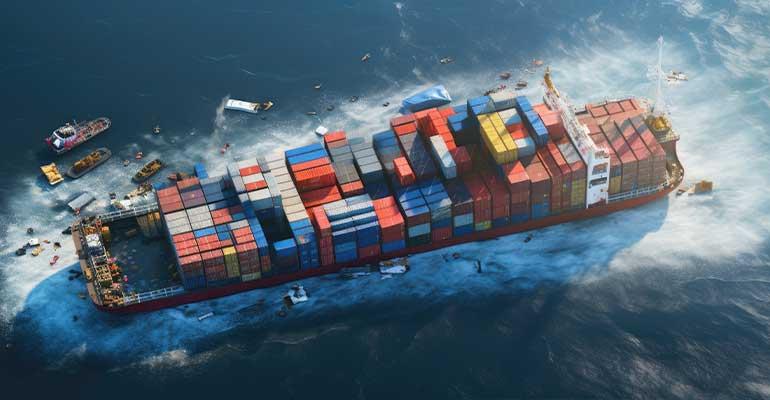As the drive to develop new zero emission fuels intensifies the salvage industry must recalibrate its training programmes to handle the patchwork of fuels that will replace oil in the transition and beyond.
Nick Savvides | Dec 11, 2023
A panel of industry experts speaking at the Seatrade Maritime Salvage and Wreck conference in London, debated the issues with the discussion started by Jim Elliot, COO at the Teichman Group, pointing out that, unlike oil, there are no legal directives governing law as a fuel.
Elliot, a specialist in many areas, including weapons of mass destruction, said that where Oil Pollution Act of 1990, enforced following the Exxon Valdez grounding, covered the handling of oil types 1-4, there was no similar legislation that would guide protection against a new fuel.
Related: Mental health in casualties to feature at Seatrade Maritime Salvage & Wreck 2023
“If new fuels are not dealt with directly, they could have a catastrophic impact on sea and land,” advised Elliot.
Highlighting some of the expected challenges, the salvage company Blue Tack’s operations manager Carl Henrik Frankman explained that oil can be lightered in the event of a leak, it is a comparatively straight forward operation that most salvors know how to handle, “But the risks from a fuel like ammonia, which emits toxic fumes and is corrosive, is very different.”
While the handling of methanol is also easier than some other fuels the very low temperatures and high-pressure containment of some fuels, including hydrogen and LNG require an entirely different response.
Also on the panel was ClassNK’s MD for Europe and Africa Abdul Rahim, who lightened the mood, by responding to an audience question on whether salvage issues were considered in the design of new vessels, by responding flatly, “None”.
Rahim pointed out the purpose of vessel design was to ensure that vessels do not have accidents, but conceded that “accidents do happen”.
In his contribution Rahim also pointed out that a fuel like e-methanol is already handled widely without incident, but cautioned that of the 5,420 ships on order globally, 1,450 of these would be powered by alternative fuels, nearly 50% in gross tonnage terms.
He added that while ammonia is stored at -33°C, making it easier to handle than LNG which is liquefied at -163°C, ammonia will need double piping, like LNG, and because the fuel is corrosive to nickel steel and copper, metals that are non-corrosive to ammonia must be used in the construction.
Salvage teams of the future will be required to learn the properties of a series of fuels and the techniques to handle them as well as having the tools to protect lives, of crew and salvage workers, and the wider population.
As one panellist pointed out, the “European authorities are not going to be happy having a toxic cloud floating over the lowlands of The Netherlands,” in the event of an ammonia powered vessel incident releasing vapour into the atmosphere.
While the panel was light on solutions to these problems, the issue was that the industry was discussing the issues as the first step to dealing the potential risks of the future.
Copyright © 2023. All rights reserved. Seatrade, a trading name of Informa Markets (UK) Limited.
Reference :

